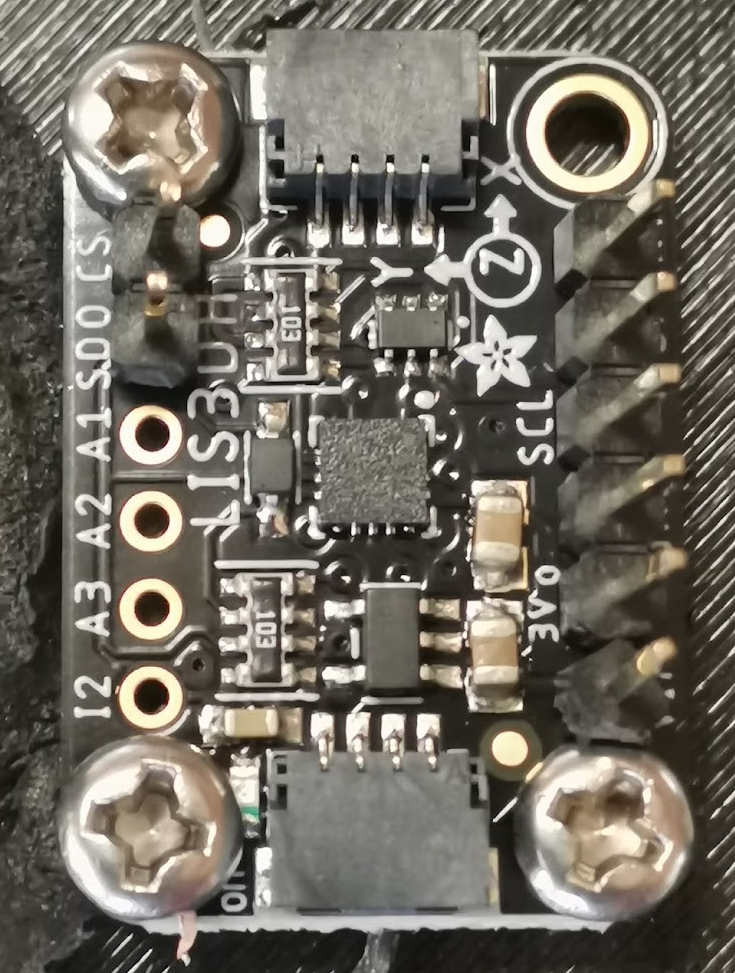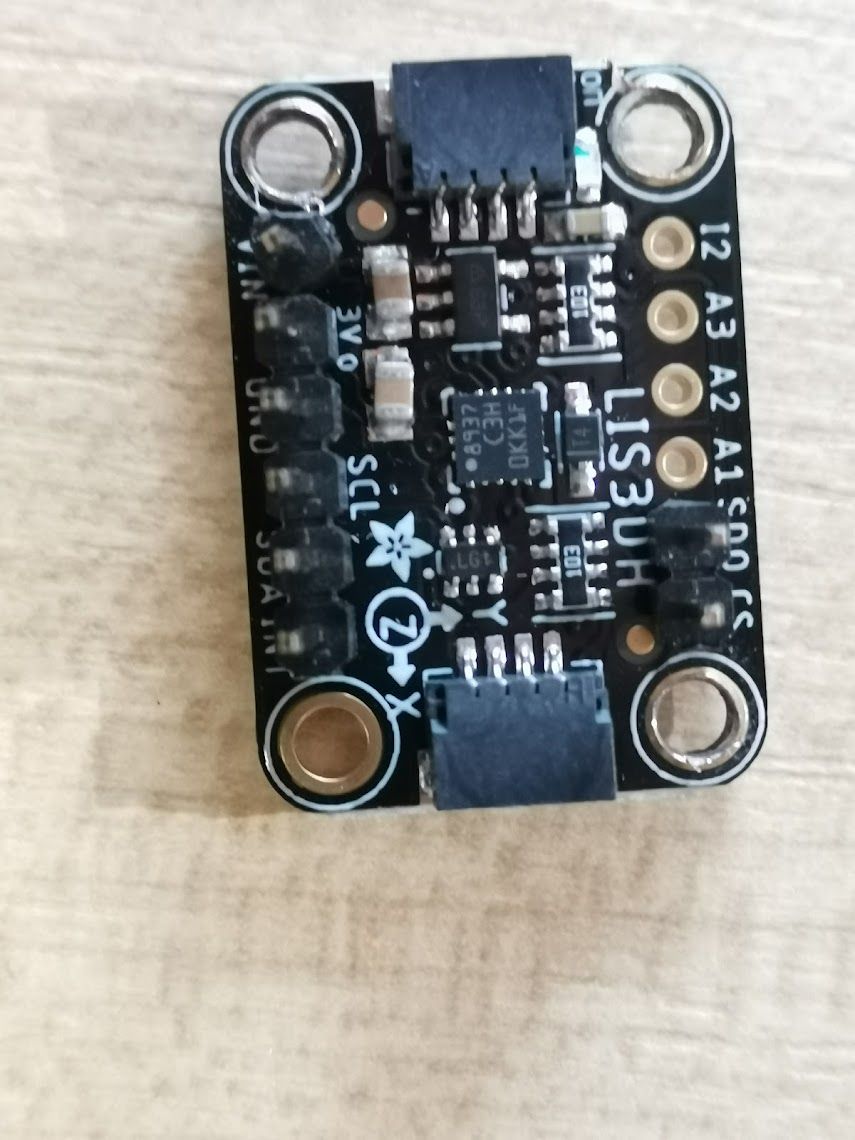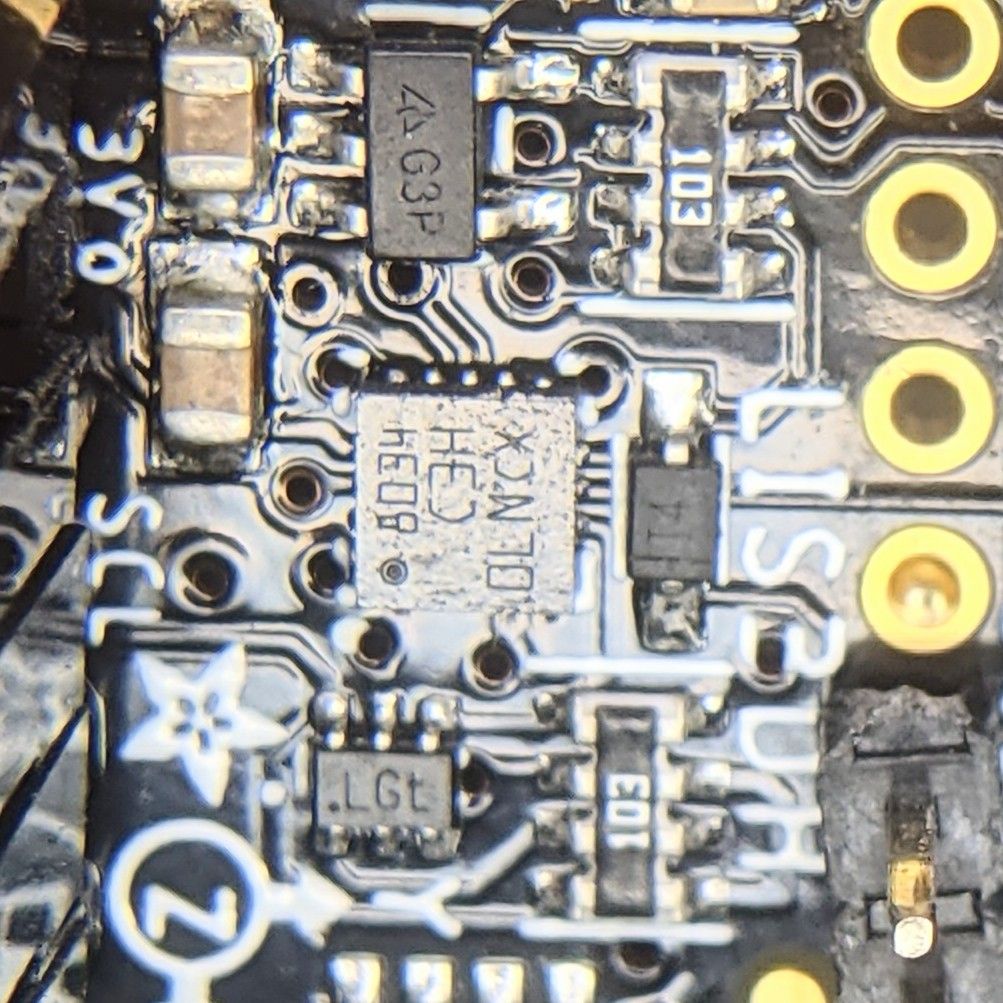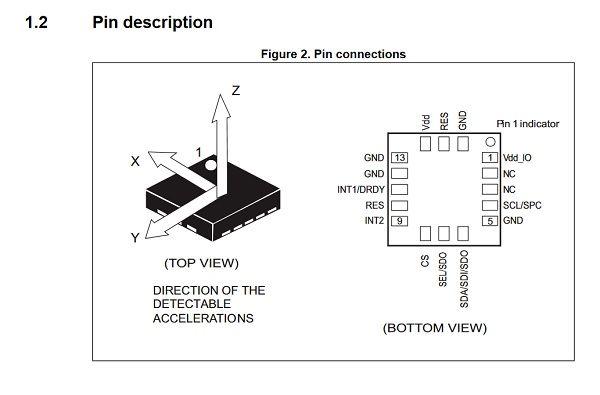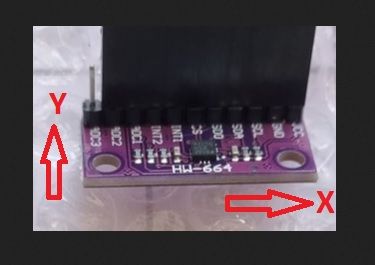Accelerometer Usage
-
@dc42 how'd you do InputShaping for IDEX machines? In independent head mode, I guess I can set the InputShaping for each head in
tpre#.g, but what about copy mode / mirror mode? I guess to keep with the program, the task here is to build the IDEX machine so a common InputShaping setup for X and U is viable? -
@oliof said in Accelerometer Usage:
@dc42 how'd you do InputShaping for IDEX machines? In independent head mode, I guess I can set the InputShaping for each head in
tpre#.g, but what about copy mode / mirror mode? I guess to keep with the program, the task here is to build the IDEX machine so a common InputShaping setup for X and U is viable?For now, yes. In future we RRF may support different shaping on the X and U print heads.
-
-
@jbergene can you read any markings on the accelerometer chip? You may need to find the correct lighting angle to see it.
-
i got my accelerometer installed using a usb3 cable, i was able to get it working even over 3meters!! i generated the csv files but right now i am stuck at figuring out how to make use of the data. how do i know which frequency to use in M953 Fnn? do i actually need to print something to tune even with the accelerometer? i was under the impression that printing and measure ringing and calculating Hz wS only needed if you dont have an accelerometer to generate the csv files.
-
@tekstyle See here: https://duet3d.dozuki.com/Wiki/Accelerometers
Having the accelerometer is just the first step. You will need to do some test movements to get readings and then analyze them to determine which frequencies are needed to use with the input shaper.
-
@tekstyle thats smart! i will try that

-
@phaedrux the documentation currently lacks the two crucial sentences, how to find out the dominant frequency of an axis ... but the InputShaping plugin will solve this eventually (-:
-
8937
c3H
0KK1F? -
@oliof said in Accelerometer Usage:
@phaedrux the documentation currently lacks the two crucial sentences, how to find out the dominant frequency of an axis ... but the InputShaping plugin will solve this eventually (-:
This feature is barely in beta form. You can't really expect comprehensive documentation at this point.
-
I am not expecting comprehensive documentation at this point. As I wrote I am looking forward to the eventual solution via the InputShaping plugin.
-
@phaedrux i have the accelerometer plugin. i was able to visual the graph for all 3 axis. i just dont know what to look for as the link provided isnt clear on how to interpret the data to figure out which hz to use. or i am just not understanding the content.
-
@tekstyle No you're right. That part is coming and hopefully will be more automated by the plugin to suggest what it should tune out, among other things.
-
@phaedrux oh ok. i'll wait for that in the meantime. Thank you.
-
@jbergene
mine says "DSH" clearly, not sure what a DH should show? Anyone? -
-
@o_lampe Yeah
 maybe ill just try the DSH that arrived yesterday. that one says
maybe ill just try the DSH that arrived yesterday. that one says
2304 - DSH - YP3HC"Do you know the orientation of the purple LISD3DSH board? X Y Z
I cant find that information anywhere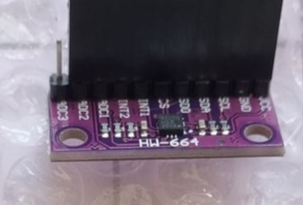
-
According to this picture
- positive X goes to the right
- positive Y goes to the back
- positive Z goes up
-
@o_lampe thank you:)
-
@gloomyandy I bought one from that seller. The board seems to indicate a LIS3DSH but the chip has 3CH on it which is a LIS3DH. Have you connected it up & what does the Duet report?
I bought two boards from different sellers. One should be a LIS3DH and the other a LIS3DSH. They look identical to me and both have 3CH on the chip.
The only difference is one has OED26 after the 3CH and the other OED27.
I have only connected the OED26 to the Duet so far.They both look like this on the back:
I'm assuming that the Duet will report the correct chip.
Edit: I have soldered a connector to the other one (OED27) and tested it with the Duet. Also get same message as the other one
Accelerometer 0 type LIS3DH with orientation 14 samples at 1344Hz with 10-bit resolution, SPI frequency 2000000Hmmmpphhh!
Edit:
Further tests connecting the device to an Arduino confirm it is a LIS3DH as it returns device id = 51 (0x33). So despite it being advertised as a LIS3DSH and the pcb indicating that it is - well it isn't. So be careful when buying these folks and check the code on the chip:
3CH = LIS3DH
DSH = LIS3DSHI have ordered another one from the link given by @dc42 above. Let's see what turns up

